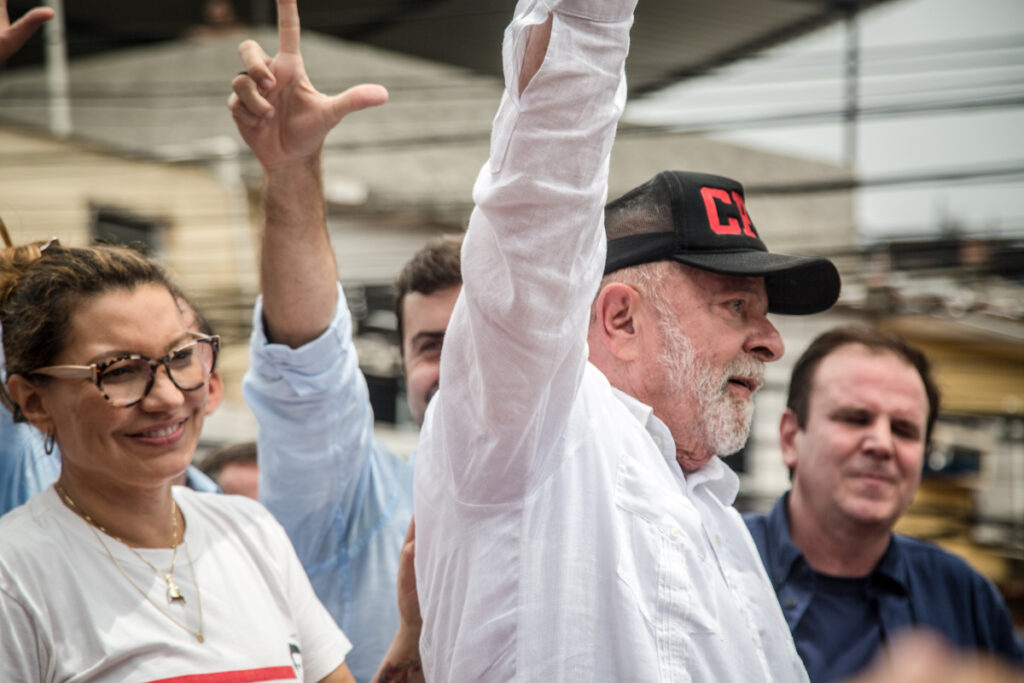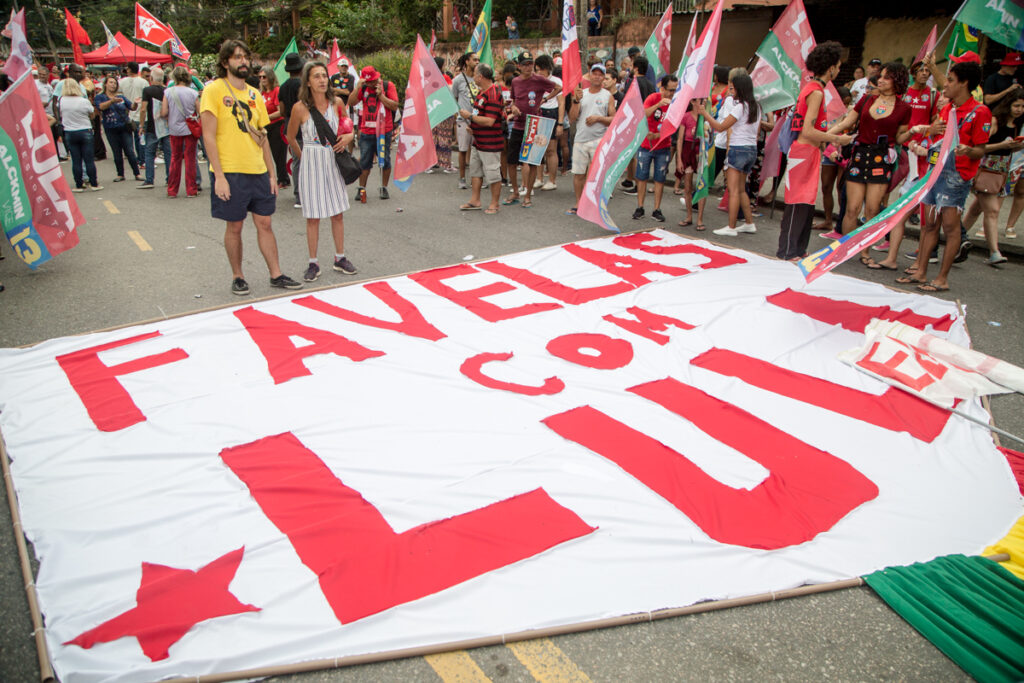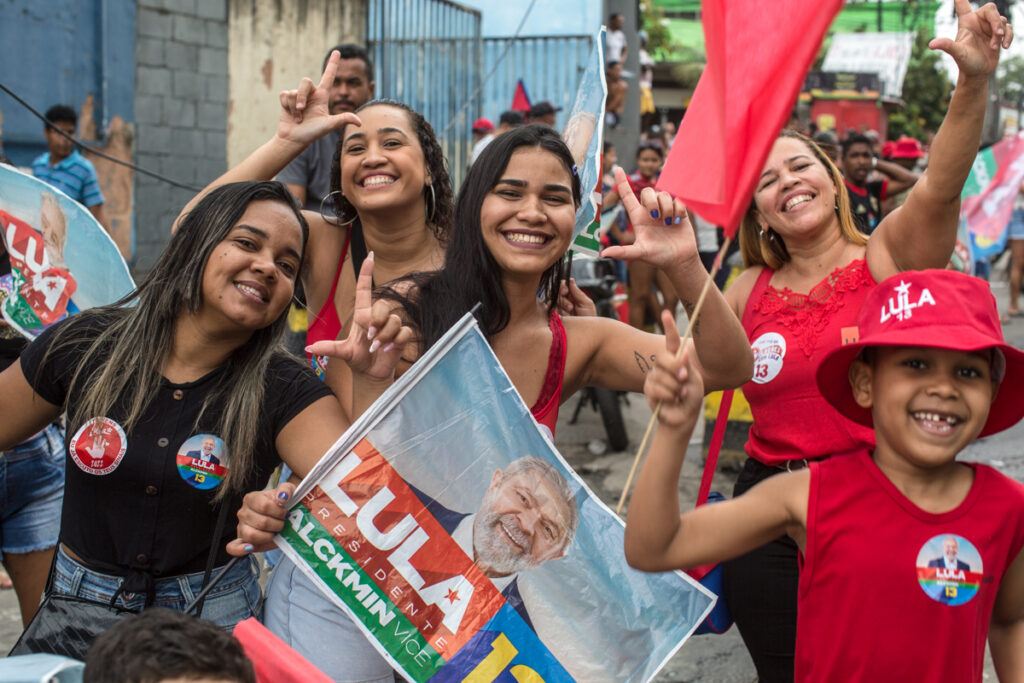Everything is boiling in Brazil right now. After the results of the first electoral round, the distance between Lula da Silva, candidate of the Workers' Party (PT) and Jair Bolsonaro, candidate for the Liberal Party (PL), is a dangerous distance. The most recent poll, on the eve of the second round (to be held on Sunday, October 30, 2022), places Lula above by only 6.4%, that is, a total of 53.2% in valid vote intentions and with a 46.8% to the current president Bolsonaro.
The figures represent a part of the operation of the electoral results, however they have a margin of error and in the streets, in social networks, the media and in the voting centers, is where it will be decided who will govern Brazil in the next 4 years. And what will be the fundamental structural decision that the next administration will support: on the one hand, a return to a certain welfare state supported by assistance programs and long-term bank loans and on the other hand, a kind of barbarism.
For the entire country and for the continent, these elections also mean the possibility of a voracious destruction of natural resources in the Amazon, not only because of agribusiness but also because of the null interest that Bolsonaro has shown in the care and preservation of the largest lung of the world. On the contrary, for the current president, the important thing about power is to obtain economic gains and endlessly reproduce his consolidation as the hegemonic political class.

In these elections, the increase in the circulation and possession of weapons in the streets of a country plagued by inequality, hunger and above all, the resentment that is also fostered from the government structures is also at stake. Not only has racism not ended, but it has worsened and the streets of the main cities cannot hide this reality: those who live in them without access to decent housing are, for the most part, the Afro-descendant and indigenous population.
During a recent stay in Brazil on the occasion of the first round of the elections, I also had the opportunity to stay longer and exchange ideas and reflections with many people, from different strata and formations, with different professions and in each of the opinions and balances that exist. some common denominators that I would like to share just on this election eve.
There is a clarity that whatever the result, the country will maintain a tension that may or may not grow, and this, especially thinking of a new Lula government, means that solid teamwork is needed to attack two fundamental fronts: on the one hand , to govern for a diverse population with different needs but that requires attention to specific problems and that in four years, perhaps they can begin to be addressed. However, the other focus will be on defending the government itself from all the attacks and tricks that Bolsonaro and his people have in mind (and those that occur to them), since they control the governorships and an important part of Congress.
The mere possibility of an agrarian reform that curbs agribusiness could reverse the balance and place this government in a place of strength and legitimacy without precedent in Brazilian history, although unfortunately, this action has not been proposed or mentioned.

However, if the scenario results in a second term for Bolsonaro, what is called for is to consolidate a process of active and critical resistance to avoid, at all costs, the beginning of an even darker period. Resistance implies that different sectors find their common ground and make alliances to face new economic and political attacks from Bolsonarismo, openly violent and arrogant. Perhaps it is time to resume many discussions that do not place the partisan political tradition at the center but the search for alternatives that go through other paths at this time.
There are many organized sectors, from quilombola women, indigenous communities, homeless movements, the Landless Workers Movement (MST), cultural movements in every corner of Brazil, the consolidation of a movement of black women that is occupying relevant positions in politics, critical religious movements, LGBTQA+ communities, favelas and peripheral regions. All these experiences of fighting for a better life have a lot to contribute, always, historically, and it is history today.
The third common denominator is that the future of this country will not be decided only in the elections but in the active participation of all sectors in the construction of solutions for the oldest problems: health, education, work, housing, culture, justice, freedom, democracy It is essential to understand that governments, under the capitalist model, do not create better conditions even if they discursively raise it, it is not possible to build life projects with the same tools of the system that is based on exploitation and the generation of more economic power.
And that is not possible in a conjuncture but it is the work of a lifetime.

You may be interested in: Brazil's awkward second round




